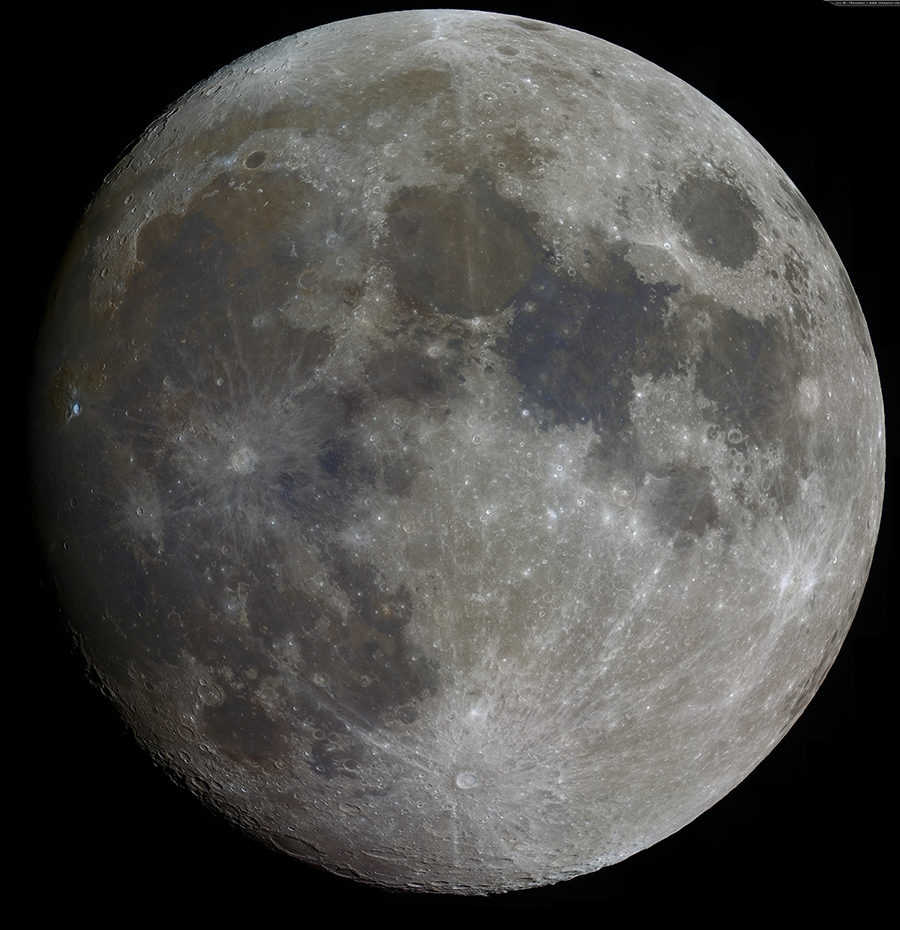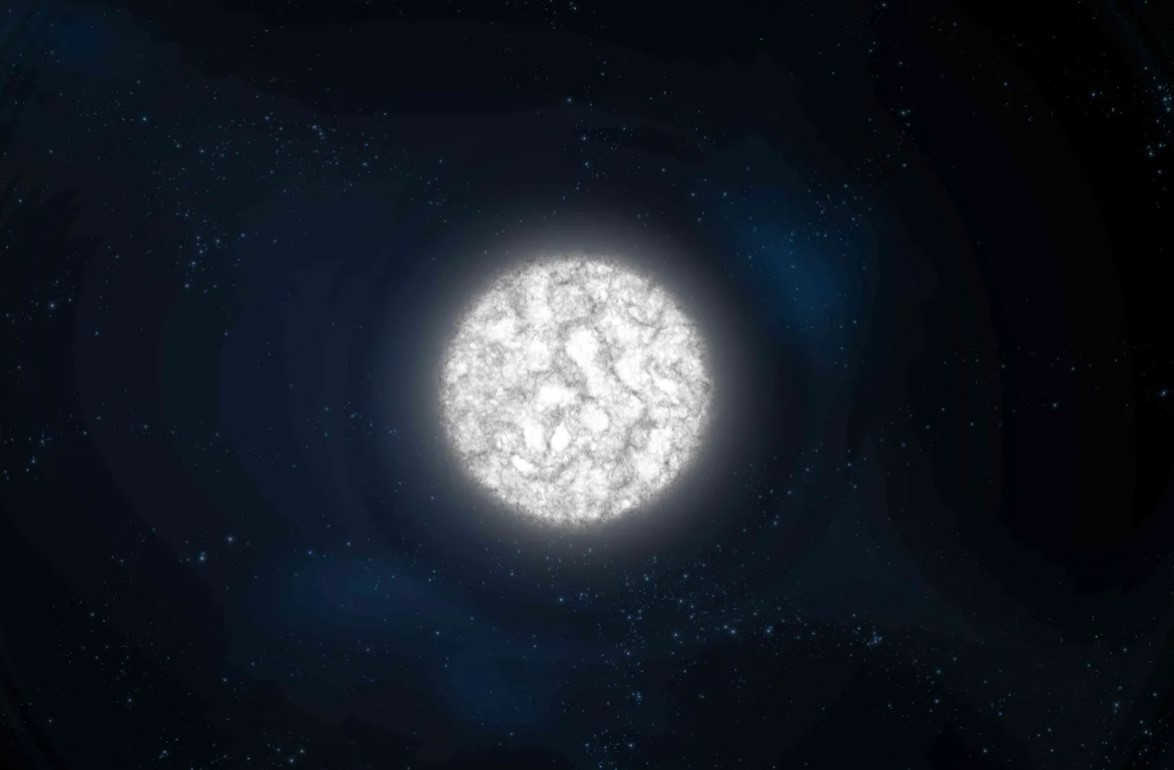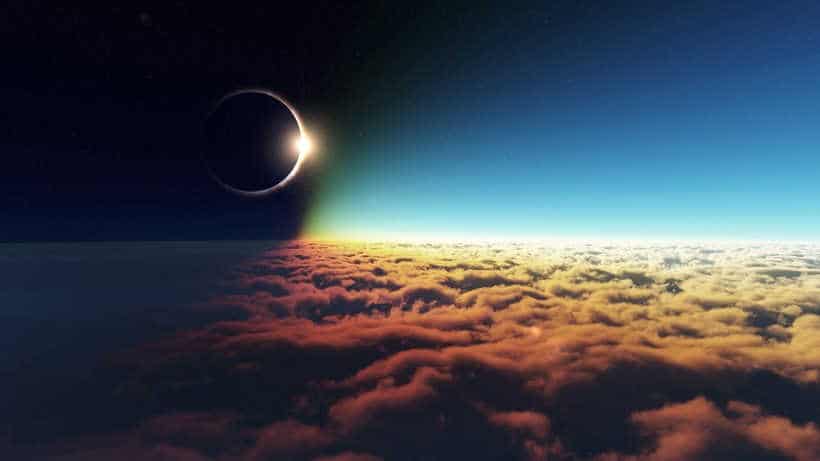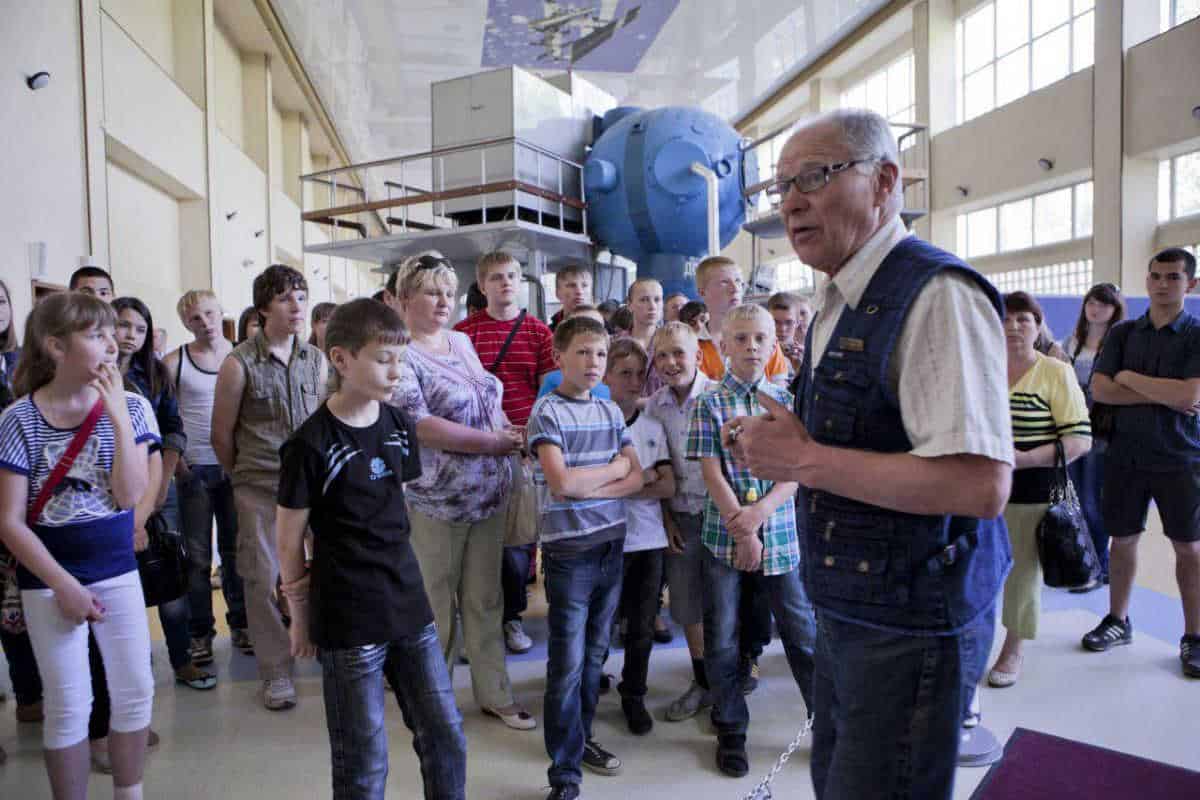Anton Shkaplerov completed his tenure in the cosmonaut brigade of Roscosmos State Corporation on March 14, 2023. He now serves as the deputy head of the department at the Yuri Gagarin Cosmonaut Training Center.
On May 29, 2003, he was selected to join the cosmonaut brigade for general space training by the Interdepartmental Commission.
Overall duration of flights
INFORMATION
Idols from early years
Preferred urban center
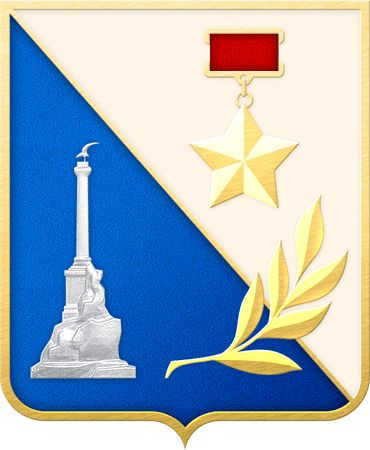
Yuri Gagarin’s flight into outer space on April 12, 1961, marked a historic moment as the first man to venture beyond Earth’s atmosphere. This significant event led to the establishment of the Day of Cosmonautics, celebrated annually to commemorate this milestone.
A notable Soviet cosmonaut, Shatalov, who holds the title of No. 13, and is a candidate of technical sciences, played a crucial role in the creation of the world’s first experimental space station. Additionally, under his guidance, cosmonauts successfully traversed outer space. Shatalov’s expeditions include Soyuz-4, Soyuz-8, and Soyuz-10.
Another remarkable Soviet cosmonaut, who is known as No. 12 and holds a title in Psychological Sciences, embarked on a space flight from October 26-30, 1968. This mission lasted for an impressive 3 days, 22 hours, and 50 minutes. During this journey, an unprecedented attempt was made to dock with the unmanned Soyuz-2 spacecraft while in the shadow of the Earth. This adventurous expedition was part of the Soyuz-3 mission.
Soviet Cosmonaut #51. During the 211-day mission, a variety of experiments and research were conducted. Additionally, a spacewalk lasting 2 hours and 33 minutes was performed.
Expeditions: Soyuz-T5, Salyut-7, Soyuz-T7.
A Soviet test pilot who served as the commander of the aircraft crew that achieved the first non-stop flight across the North Pole from Moscow to America in 1937.
A Soviet pilot and military leader, Colonel-General of Aviation. In 1937, he commanded an airplane crew that completed the ultra-long non-stop flight from Moscow to the North Pole and then to San Jacinto (USA), setting three world aviation range records.
The Soyuz spacecraft is a Russian multi-seat transport vehicle used for manned space travel. It has successfully completed over 130 manned flights and has played a crucial role in both Soviet and Russian space exploration programs. The manufacturing process for each manned Soyuz spacecraft takes approximately 2.5-3 years.
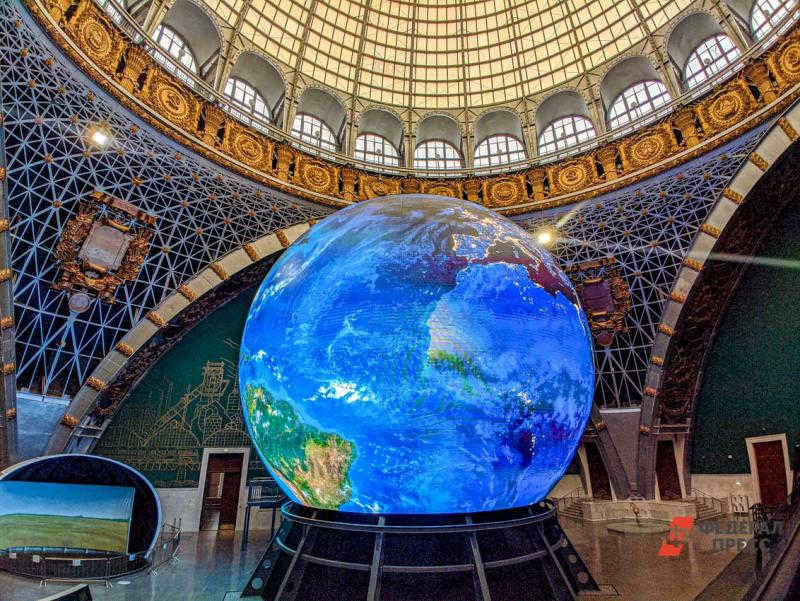
Being a cosmonaut is one of the most fascinating professions, but not many people are aware of the challenges they face during their training. The lecturers from the Russian Society “Znanie” shared insights into the tests cosmonauts undergo, the scientific disciplines they study, and the point of no return in this career.
Heroes of Russia, cosmonauts Andrei Borisenko and Anton Shkaplerov, along with Nikolai Tikhonov, a test cosmonaut and member of the cosmonaut squadron from 2006 to 2020, addressed the audience at the lectures organized by the Russian Society “Znanie”. These speeches were part of various projects such as “Knowledge.Career”, “Space Lecture Hall”, “Mentor Marathon”, “Knowledge.Space”, and “Russia in the World”.
Astronauts are individuals who have harbored dreams of space exploration since their early years. The tales of Andrei Borisenko, Anton Shkaplerov, and Nikolai Tikhonov serve as a striking testament to this fact: from a tender age, they possessed an unwavering conviction about their chosen path and diligently pursued their aspirations. Cosmonaut Andrei Borisenko emphasized that three fundamental elements are crucial to the astronautic profession. Firstly, one must possess sound physical health. Secondly, a comprehensive understanding of various disciplines is imperative. And lastly, an indomitable passion for the work is indispensable. His colleague Anton Shkaplerov remarked that entering this profession is not as daunting as it may initially appear. It is paramount to cultivate a healthy lifestyle from a young age, engage in physical activity, diligently pursue studies – not necessarily with top-notch grades, but with a firm grasp of knowledge – and heed the wisdom of the older generation.
Located in Russia, there exists a training facility specifically for cosmonauts. This center exclusively admits highly educated individuals with significant work experience in their respective fields, as well as positive recommendations. A notable example is Andrei Borisenko, who completed his studies at the Baltic State Technical University “Voenmech” and subsequently pursued a career as a rocket engineer. After accumulating nearly 15 years of experience at the Mission Control Center, Borisenko was finally accepted into the esteemed cosmonaut team. However, it is important to note that admission into the team is merely the commencement of an arduous and lengthy journey. Following acceptance, intense training that spans numerous years awaits these aspiring cosmonauts.
The training itself
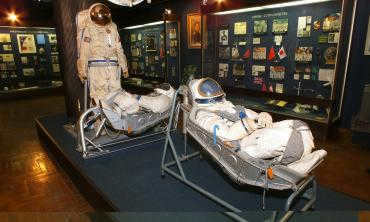
Requirements for becoming an astronaut in Russia
To become an astronaut, one must undergo extensive professional training, which typically takes 5-7 years. Throughout their time in the squadron, astronauts receive thorough instruction and practice. According to Nikolai Tikhonov, “Initially, we undergo a comprehensive space training program, where we learn about flight ballistics, spacecraft control, and all onboard systems. This course lasts for approximately 1.5-2 years. After passing the exam, we earn the qualification of a test cosmonaut or research cosmonaut”.
There are also opportunities for flight training, parachute training, survival training in different climates, sign language training, simulators that simulate the operation of onboard systems and the entire spaceflight, and the study of numerous theoretical disciplines. Andrei Borisenko highlights that it is difficult to find a discipline that astronauts do not study. “Astronauts must be skilled in programming, mechanics, plumbing, communications, biology, and more. When sent to space, it is crucial to understand the intricacies of all systems on the ISS and be prepared to perform scientific tasks. In essence, astronauts are versatile soldiers and complex engineers who carry out tasks for Earth while on board,” stated Nikolai Tikhonov.
Superheroes in outer space
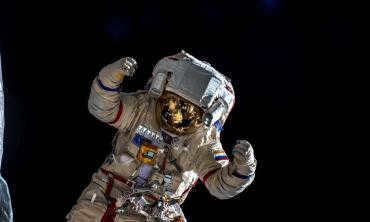
Over 50% of the population in Omsk aspired to become astronauts during their childhood.
During astronaut training, they simulate various landing scenarios in remote locations such as the taiga, desert, and water. Each scenario presents its own unique challenges. For instance, if the spacecraft lands, the astronauts are tasked with remaining inside for as long as possible, as the resources are only designed to last for 17 hours. However, if the astronauts need to leave the spacecraft before rescuers arrive, they must change their clothing in a confined space comparable to the back seat of a car. This process involves removing their spacesuits and putting on a woolen coverall, a heat-protective coverall, and a waterproof “Trout” suit. Nikolai Tikhonov explained that it is important to avoid moving too quickly, as it can cause overheating and dehydration, but moving too slowly also poses risks of overheating.
A human being spends 60 hours in a compact chamber devoid of any windows, with only one entrance, completely cut off from the external environment – even auditory stimuli are absent. Throughout the entire duration, the aspiring astronaut is required to complete specific assignments, with no provision for sleep regardless of the time of day. According to Nikolai Tikhonov, this rigorous examination serves as an incredibly efficacious evaluation method, enabling psychologists to unearth an individual’s untapped potential, ascertain their aptitude for self-discipline and self-control, construct an intricate psychological profile, and also record numerous medical indicators.
Not every astronaut has had the opportunity to go to space
There is a common misconception that all astronauts have experienced space travel. However, this is not the case. While all members of the astronaut team undergo extensive physical and psychological training, not everyone gets the chance to orbit the Earth. “Astronauts are not necessarily pilots. This is one of the realities of our profession. Upon joining the astronaut program, we are uncertain if we will ever have the opportunity to go to space. You can dedicate your entire life preparing for a space mission, doing everything within your control, but often external circumstances prevent you from actually going to space. Approximately 30-35% of trained astronauts have not had the chance to go to space”, explained Andrei Borisenko.
Andrey Borisenko shared his personal experience, stating that in the makeup of the astronaut team, pilots make up approximately 20-30 percent, while engineers comprise 70 percent. A small percentage of the team consists of individuals with other specialties, such as doctors. According to Borisenko, the true feeling of being an astronaut is fully realized when the engines of the first stage of the launch vehicle ignite. This marks a point of no return, where the risks of accidents that could prevent the journey into orbit are eliminated. Regardless of any unforeseen circumstances, the journey into space is guaranteed.
For those who have doubts
The field of cosmonautics offers numerous opportunities for individuals to realize their potential. According to Andrei Borisenko, it serves as a driving force for various branches of knowledge related to our planet. Borisenko, along with his colleagues Anton Shkaplerov and Nikolay Tikhonov, suggests exploring feature and documentary films about space, delving into scientific literature, and immersing oneself in works of fiction by authors such as Kir Bulychev, Ray Bradbury, Sergei Snegov, the Strugatsky brothers, and Stanislav Lem. Additionally, they recommend utilizing the database of the Russian Society “Znanie” for further information and resources.
And soon enough, your passion for space exploration will be satisfied.
Photo: FederalPress / Artem Tutov
Stay up-to-date with FederalPress in Zen.News and get the latest news from the Zen channel. Stay informed and connected through our telegram-channel, “FederalPress”.
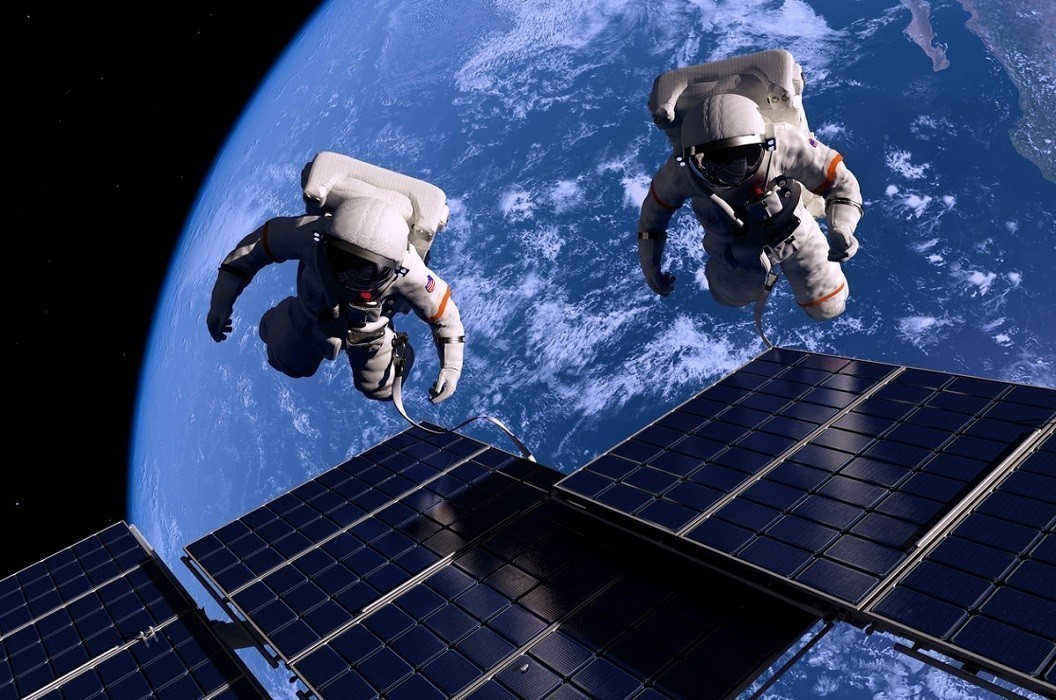



Half a century ago, humanity took a monumental leap in scientific and technological advancement: venturing beyond the confines of our home planet, a Earthling named Yuri Gagarin became the first person in history to journey into outer space.
In today’s world, space travel is no longer an extraordinary and heroic feat, and the profession of an astronaut has lost some of its allure and prestige, becoming just one of the many challenging and unconventional jobs (with less-than-stellar pay) that only a select few individuals on our planet pursue.
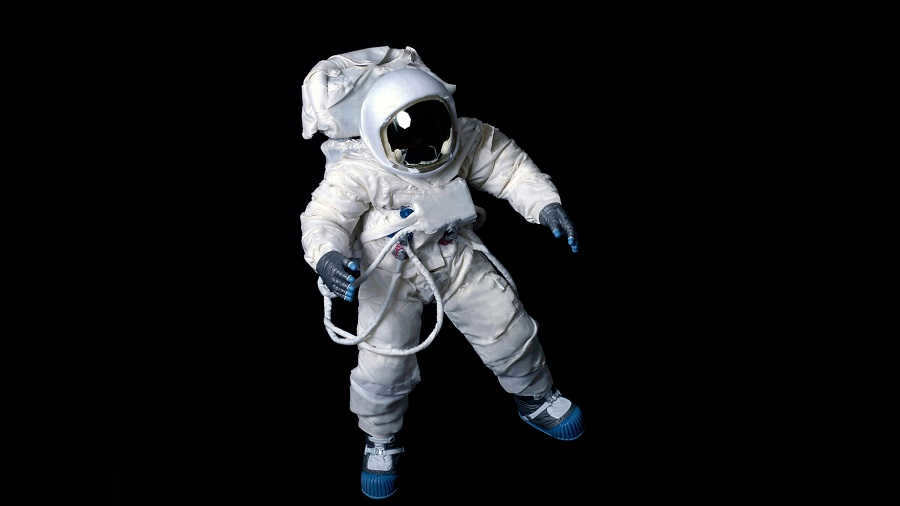
What is the importance of space exploration?
An increasing number of skeptics, both in our nation and abroad, are questioning the necessity of space travel. For instance, the United States has completely abandoned the construction of its own orbital vehicles and instead relies on the transportation services provided by Russian spacecraft.
Aside from our nation, only China is currently developing manned spacecraft, which is largely driven by prestige. However, is it truly essential for our nation to allocate such enormous expenses towards space research?
To some extent, these skeptics are correct – the rights of those cynical and calculating pragmatists who argued in their time that peasant children do not require a comprehensive education: they claim that it is sufficient to teach them basic writing and math skills, and that should be enough for them. Experience has proven that the more educated individuals are, the greater their success in all areas of life.
The state’s space industry may not yield immediate profits, but it serves as a means to develop the most advanced modern technologies and acquire scientific knowledge that is extremely difficult or impossible to obtain on Earth’s surface.
There are only a few countries that currently possess space technology. Through the advancement of the space industry, numerous new materials and technologies have been created, which have found practical applications in various industries.
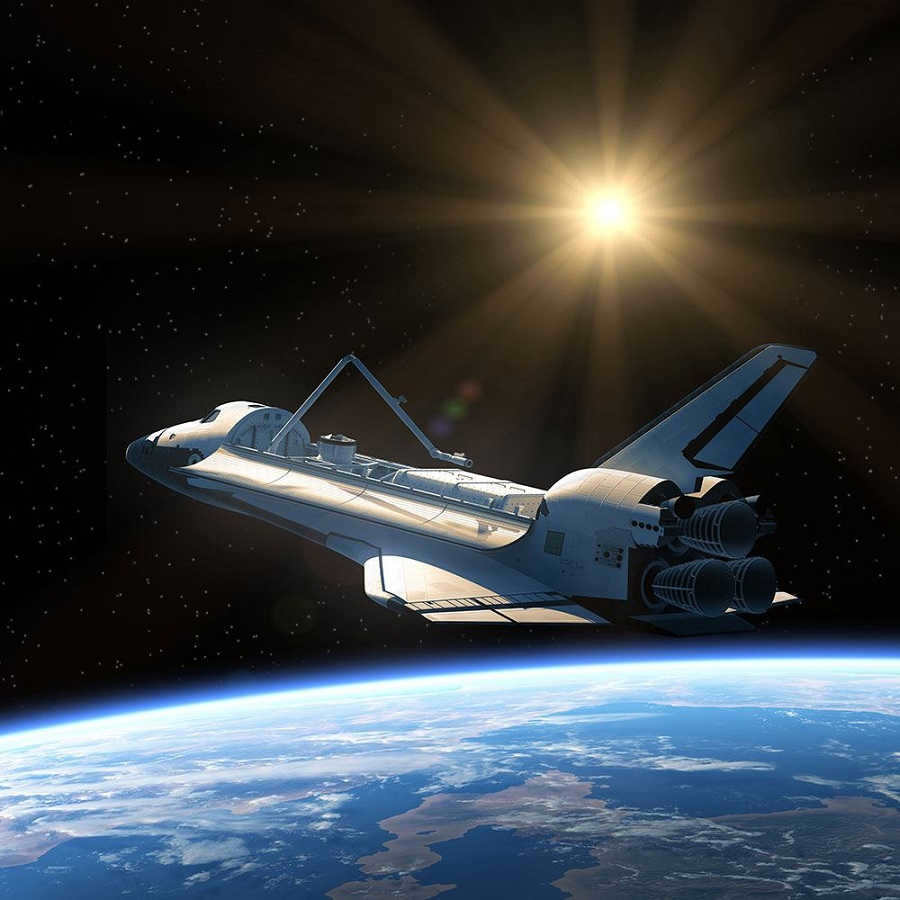
Practical Outcomes of Space Missions
What are the current activities of astronauts while orbiting in space? Undoubtedly, they are engaged in research. The absence of gravity enables the execution of a wide range of experiments that would be inconceivable under normal conditions. Numerous processes in space unfold in a completely different manner, allowing for the creation of entirely novel materials with exceptional properties.
Investigations into metals and alloys, crystal growth, conductivity experiments, and various other studies prompt speculation about the potential construction of orbital factories in the near future, where these distinctive materials could be mass-produced.
Biological research in space is of great importance. It is inevitable that humanity will eventually begin exploring the space near Earth, starting with the Moon and then moving on to other planets. Currently, leading space powers are already working on projects to establish lunar cities and explore the interior of our closest celestial neighbor.
Space research plays a crucial role in solving the challenges of human adaptation to living and working in space, bringing us closer to the realization of incredible projects.
Moreover, cosmobiology has led to the creation of numerous modern medicines, the development of new medical technologies, and the production of state-of-the-art medical equipment. Scientists have made significant progress in understanding the protein structure, which serves as the foundation of life, and may be on the cusp of even more remarkable discoveries.
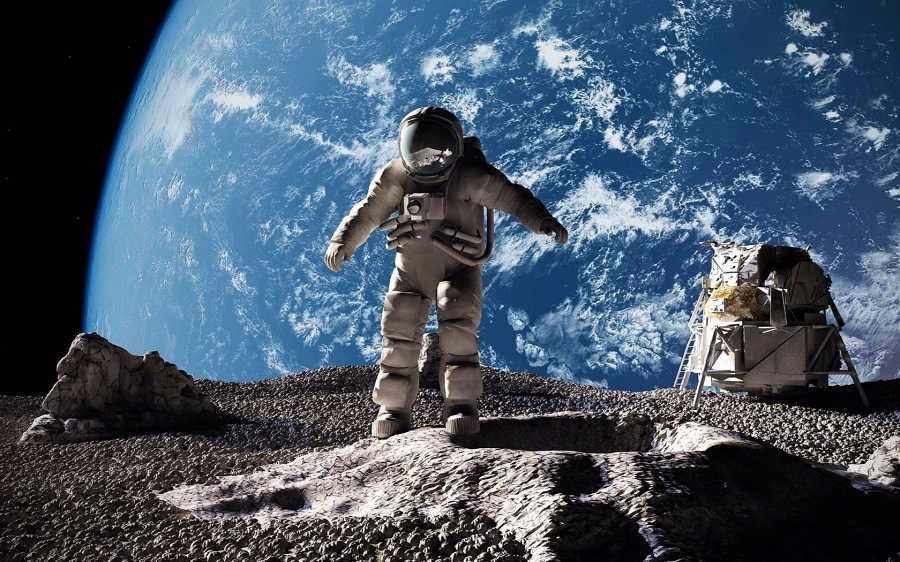
Daily routine aboard the International Space Station
We can list all the scientific fields that have made significant progress thanks to space exploration. However, what does it actually look like in practice? What does the daily life of an astronaut in orbit entail?
The astronauts’ daily schedule is designed to ensure not only maximum productivity, but also proper rest for the crew. Five days a week are dedicated to work, with a 10-hour workday that includes scheduled research, as well as repair and maintenance tasks on the station.
Cosmonauts wake up every morning at 7 a.m., followed by hygiene routines, physical exercises, and breakfast, before starting their working day. In total, they allocate 2 hours for meals and 2.5 hours for training each day – the astronauts have the freedom to manage this time as they see fit.
According to the schedule, they are supposed to sleep for 8 hours, but in reality, many of them only rest for 4-5 hours, which is sufficient for their needs. They have to use earplugs while sleeping to block out the noise generated by various mechanisms.
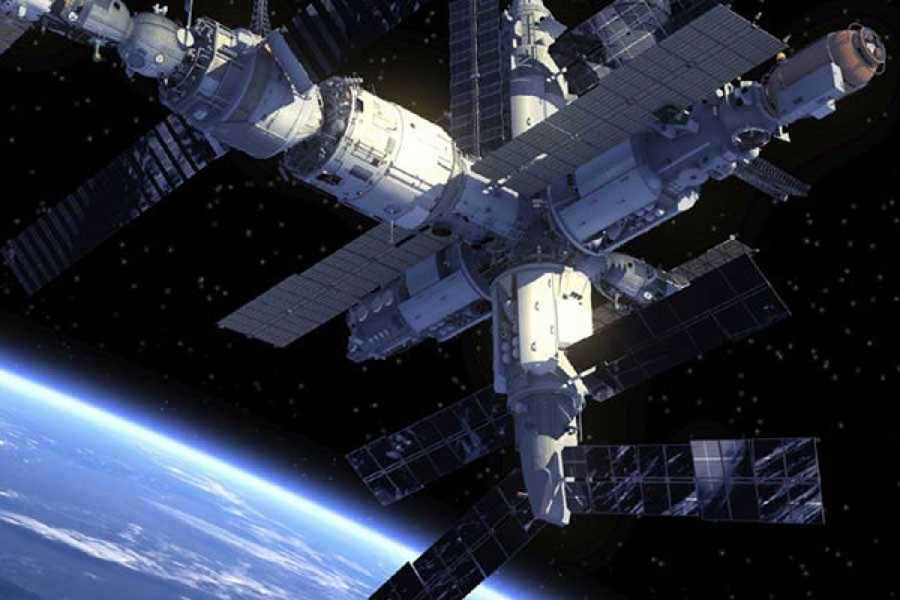
Each day, a communication session lasting an hour and a half is set aside for the purpose of interacting with the Mission Control Center. During this time, the cosmonauts relay their research findings to Earth, receive new information, coordinate their activities with ground specialists, and, of course, periodically connect with their families.
The demanding and arduous nature of their work necessitates a constant exertion of willpower, nerves, and an immense level of internal discipline. However, we can take pride in our cosmonauts – courageous individuals and exceptional professionals who bring significant benefits to their nation.
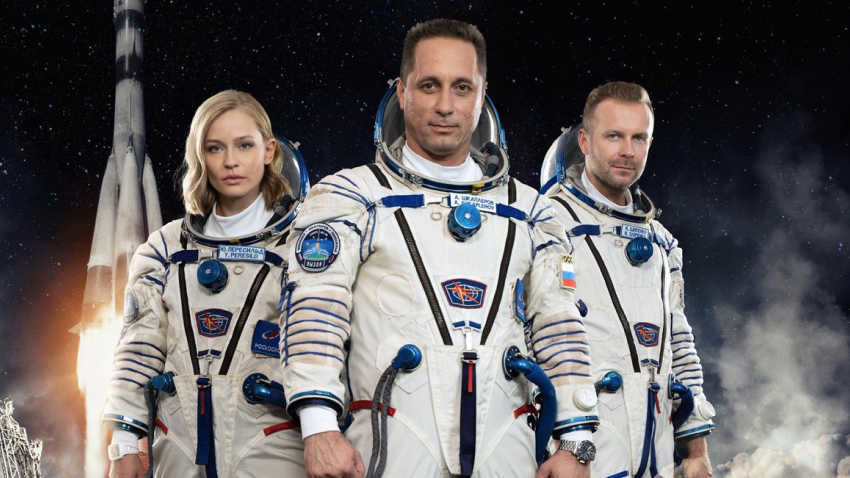
Currently, there is an ongoing project in Earth orbit to create the first-ever movie filmed in actual outer space.
In May 2020, the idea was initially proposed by the Americans, with the intention of having the renowned daredevil Tom Cruise as the leading actor, which would be the pinnacle of his career filled with daring stunts.
However, it appears that his aspirations are now unlikely to come to fruition. Russian filmmakers had hoped to once again be the first to venture into space, with the backing of Roscosmos and Channel One. Unlike their Western counterparts, they were able to progress to the filming stage, with actress Yulia Peresild (“Battle for Sevastopol”) and director Klim Shipenko (“Holop”) departing on the Soyuz MS-19 spacecraft on October 5, under the guidance of cosmonaut Anton Shkaplerov. They will spend 12 days on the ISS, during which they will capture 35 minutes of time-lapse footage for their film “Challenge”.
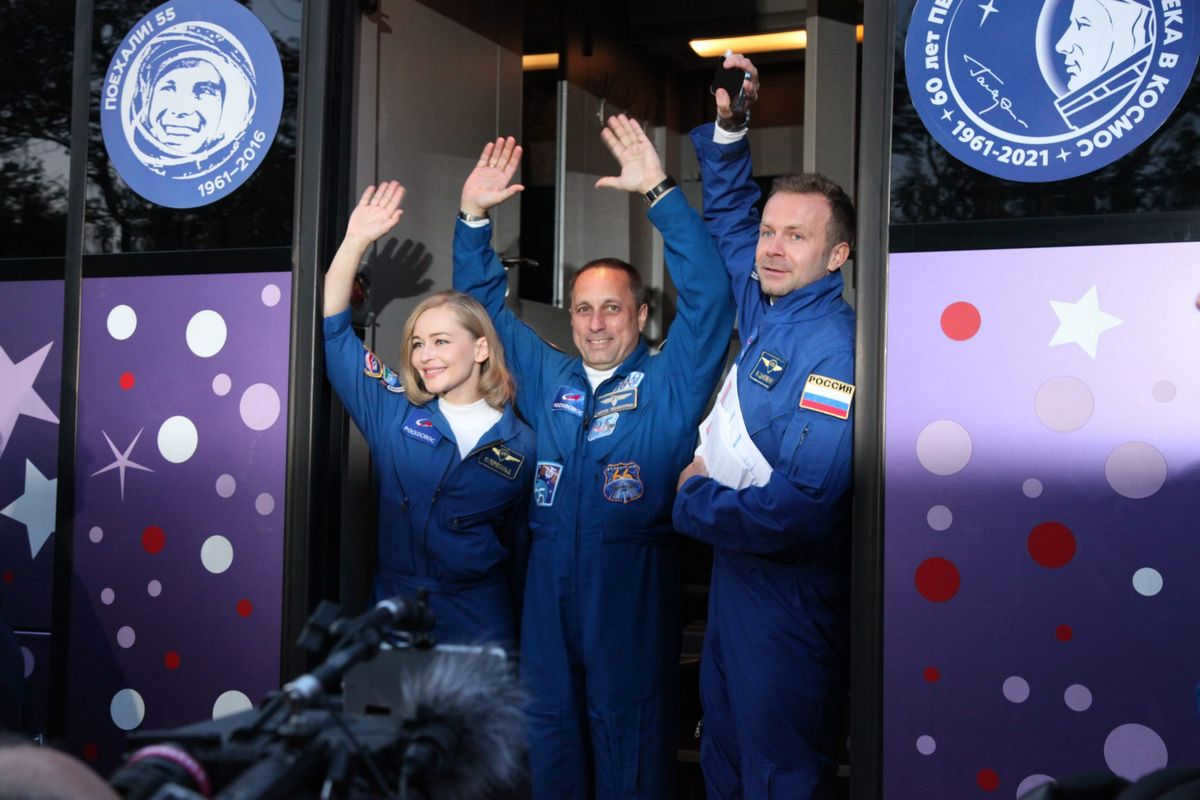
At first glance, it might seem like an unequivocal source of pride. However, not all fellow countrymen reacted positively. Let us inform you about those individuals and their reasons for criticizing the concept, as well as those who supported the pioneers.
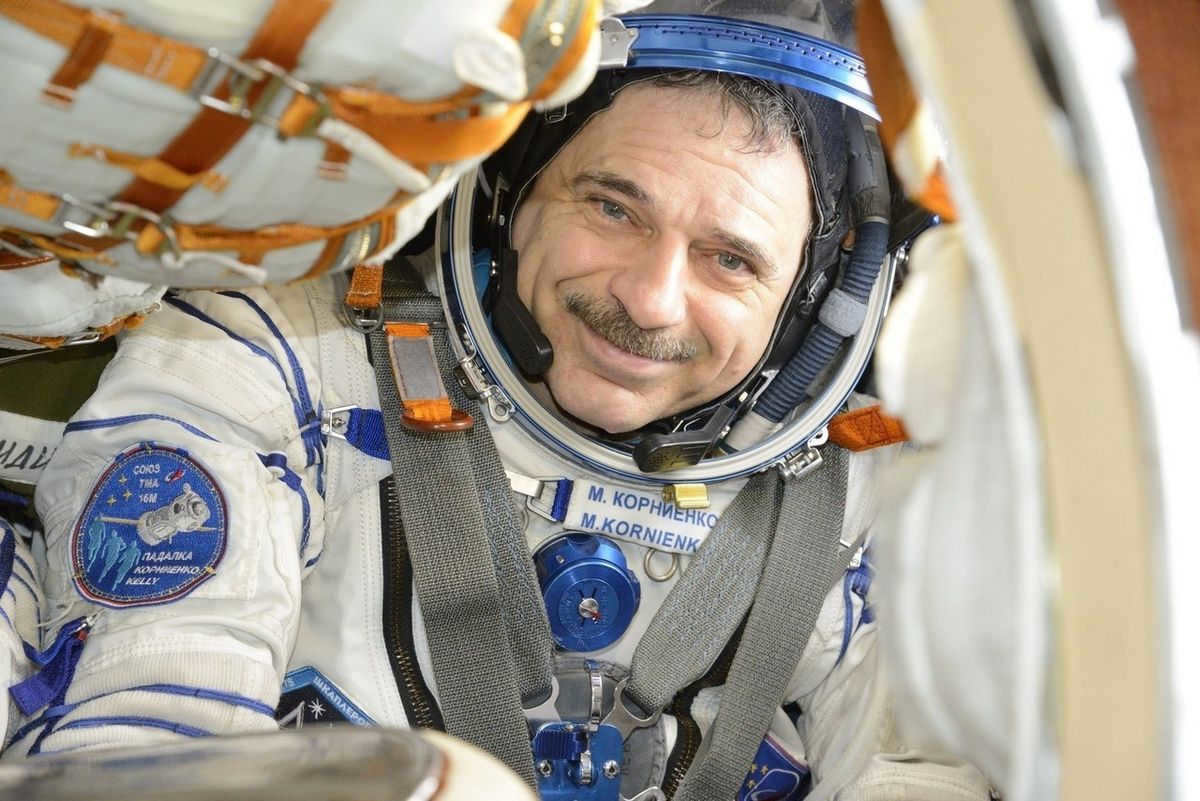
There is a lack of appreciation for the remarkable accomplishments of the actors who are also cosmonauts. Critics argue that the expenditure and utilization of the space station for filming purposes is unwarranted, suggesting that professionals should have been given the opportunity instead.
“What sets this movie apart? Is it the fact that Yulia Peresild and the director will embark on a 10-day journey to the ISS for two billion rubles? Are you confident that they won’t experience any discomfort or sickness during those 10 days? (…) I made a movie in space that garnered three million views and received extensive coverage on all channels. We could have produced a film that was not only on par with Peresild and this director, but even better,” expressed cosmonaut and hero of Russia Mikhail Kornienko in a conversation with the publication “Gazeta.Ru.”
According to another expert, the movie’s production cannot be considered commercial due to its funding coming entirely from the budget. Ivan Moiseyev, the head of the Space Policy Institute, stated that the film faces the risk of failure at the box office since only a few scenes will be filmed in space.
Moiseyev also provided his commentary on the film crew’s flight, which encountered issues even before filming commenced.
“The flight was far from flawless. The crew experienced problems with docking to the ISS, which can be considered an emergency situation, although Roscosmos will likely label it as routine. This caused anxiety among the crew members,” noted Moiseyev during a conversation with “360tv.ru.”
Is Roscosmos terminating employees who express dissent?
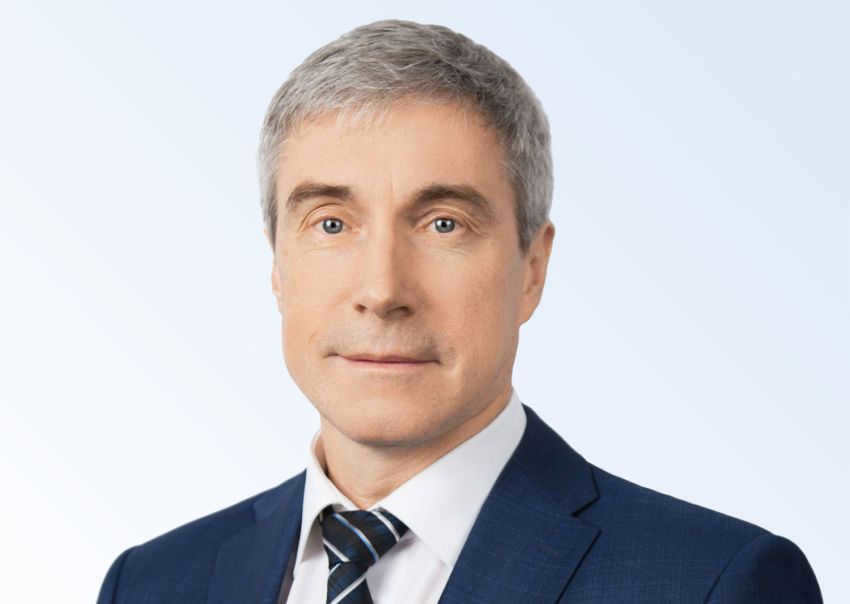
The production of the movie faced opposition even within the state corporation led by Dmitry Rogozin. In June 2021, Sergei Krikalev, the only cosmonaut in the Roscosmos leadership, openly criticized the allocation of such a large sum of money for the project. Sources from Novaya Gazeta revealed that he was initially demoted due to his stance, but later reversed his decision. This change of heart was influenced by a personal meeting between the cosmonaut and the CEO.
“I have heard that many in the industry expressed opposition to the filming of this movie. However, it should be noted that only a small number of individuals openly voiced their objections. I would like to appeal to those who are against this project but choose to remain behind the scenes – what is your reasoning? The movie is being filmed on the International Space Station as part of a scientific experiment called “Challenge”. This bureaucratic cover has disrupted the 2021 spaceflight program, which had already been in place for quite some time. Under the previous program, there were three individuals on board, but now, due to this experiment, we will only have two people on board for a year. Has no one else noticed this significant change? These concerns were shared by Yurchikhin in an interview with “Novaya” magazine.”
Test cosmonaut Sergey Zhukov provided an explanation for the negative reception of this spaceflight news.
“The presence of space tourists, especially those who hastily take a flight, is viewed negatively by professional cosmonauts. It is understandable why they feel this way: a cosmonaut spends many years preparing for a mission, and when the opportunity to fly in the Soyuz spacecraft is given to passengers, it delays the scheduled expeditions for some and may even prevent others from experiencing space. Additionally, it undermines the sense of professionalism for a cosmonaut to serve as a driver and attendant for these ‘passengers’, leaving them questioning their purpose on the space station and whether they were adequately trained for this role,” the cosmonaut stated, as quoted by “Novaya”.
Opposition to space tourism is not only voiced by professionals in the industry, but also by certain individuals in the entertainment sector.
Text messages are used to raise funds for the medical treatment of children
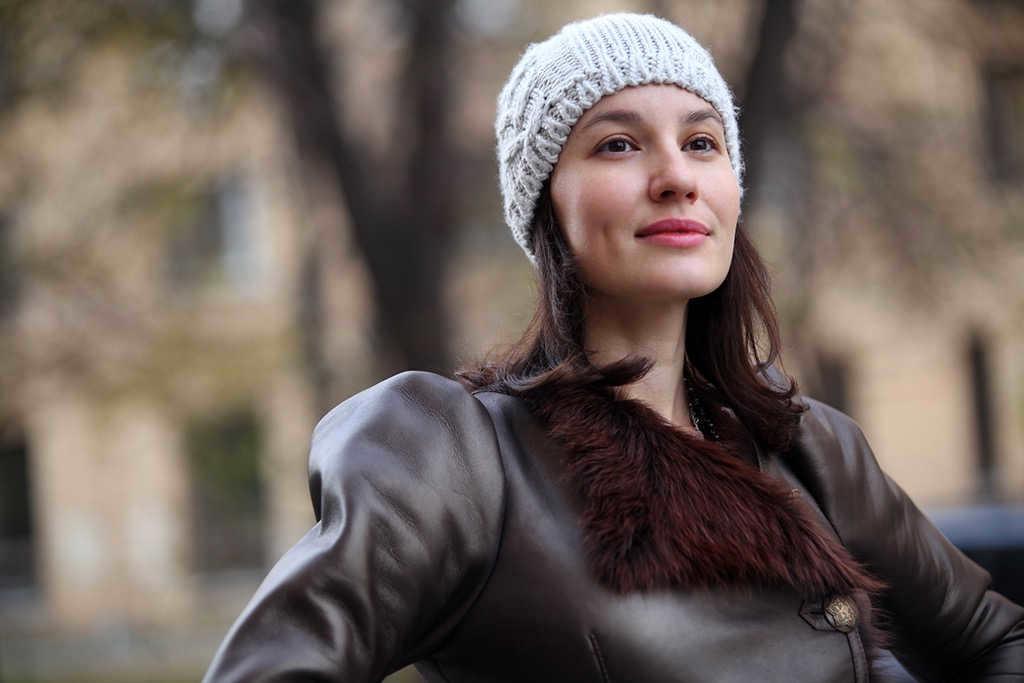
This is exactly what blogger Lena Miro has been discussing. She has repeatedly expressed negative opinions about the chosen actress for the film, Peresild. However, this time she decided to focus on the movie’s budget. According to Miro, if the money allocated for the movie had been spent on drugs for spinal muscular atrophy (SMA), it could have helped nearly all children in Russia with this diagnosis.
The blogger mentioned that Rogozin had stated that the film would be financed by Channel One.
Discrediting Careers
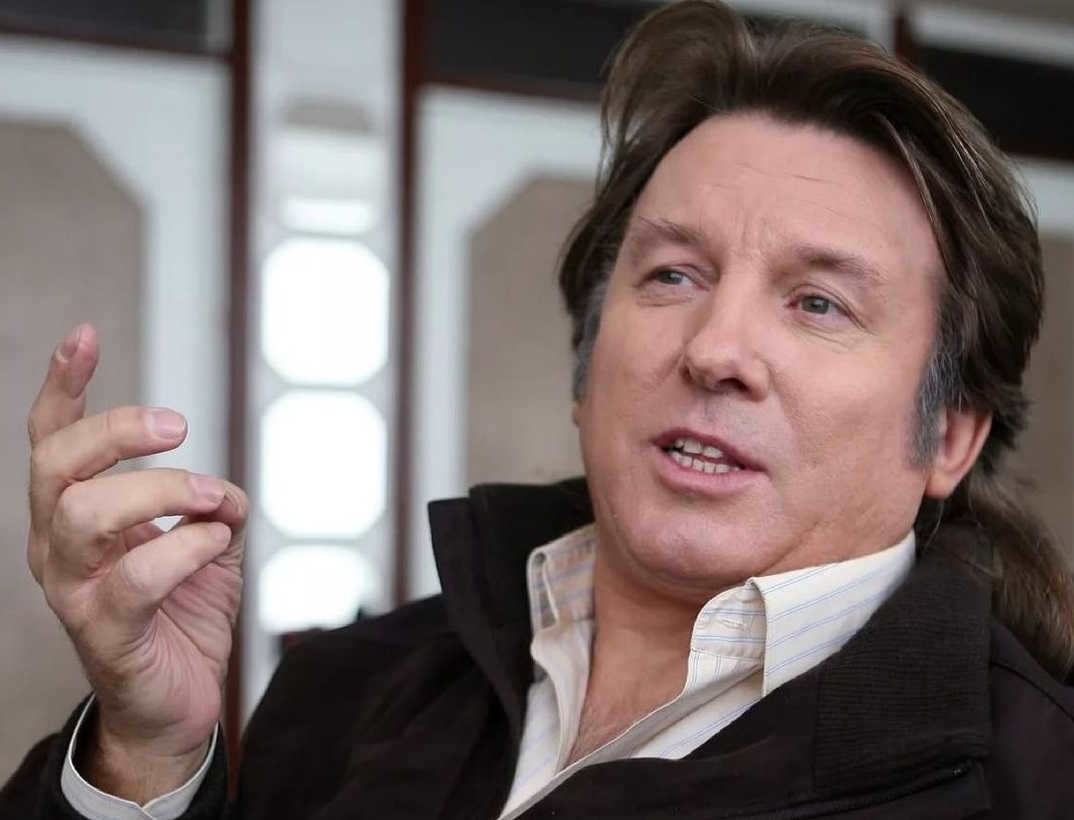
According to the famous musician Yuri Loza, there is an excessive tendency in the media for characters to delve into professions that are not their own.
“The First Channel is currently featuring a show where several actors, who have no background in astronautics, are attempting to launch into space. In the past, these media personalities have clumsily danced with stars on the dance floor, performed on the stages of prestigious theaters, swam with dolphins, entertained audiences in the circus arena, and even tried their hand at ice skating (which they still do).”
“I can’t even begin to imagine which professions will be discredited in the future and where these amateur celebrities will be invited next. It’s clear that they are willing to do anything for the sake of publicity, even putting out fires and performing appendectomies on camera. However, it would be better if these tasks were left to the experts,” wrote the performer on his VKontakte page.
Incidentally, within the remarks underneath the blog post, advocates of the conspiracy theory have been discovered; those who believe that the performers were not actually sent out to space, and that the viewers are merely being deceived.
"I am curious as to which studio soundstage they will use for the shooting of the ‘space’ scenes and how they plan on simulating weightlessness. I wonder if there will be gullible individuals who will truly believe that they are out in space," wrote one social media user.
BadComedian is eagerly anticipating the film. He’s genuinely waiting.
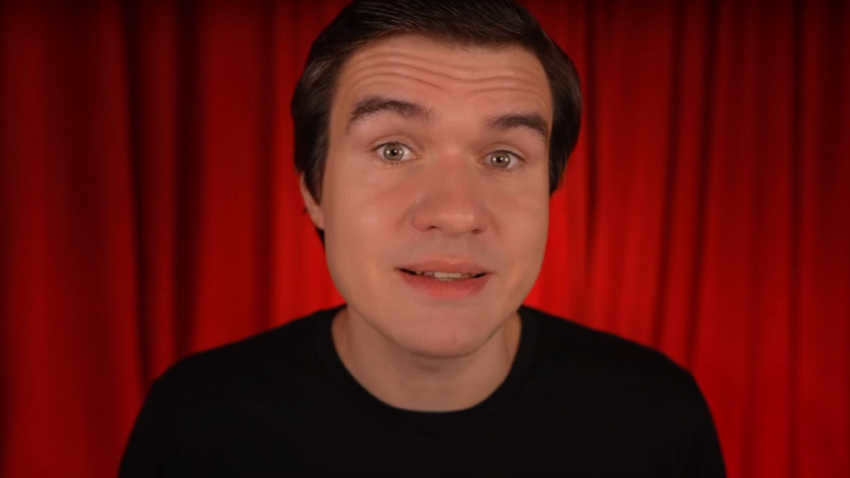
However, there were individuals who had the opportunity to share the excitement of domestic accomplishments. One of them was a film enthusiast named Evgeny Bazhenov, who is widely known as BadComedian.
“From a marketing perspective, I believe it’s fantastic. For instance, I would definitely watch it to see what has been filmed,” Bazhenov shared in an interview with “News.Ru”.
Undoubtedly, BadComedian’s fan base is eagerly anticipating his review of the film, rather than “The Challenge”.
The reviewer also made a comment regarding the speculation that the flight will not be genuine.
“It’s easier to send a person into space than to conceal all of this,” the blogger remarked.
Alexander Petrov and Vladimir Mashkov are prepared to take flight as well
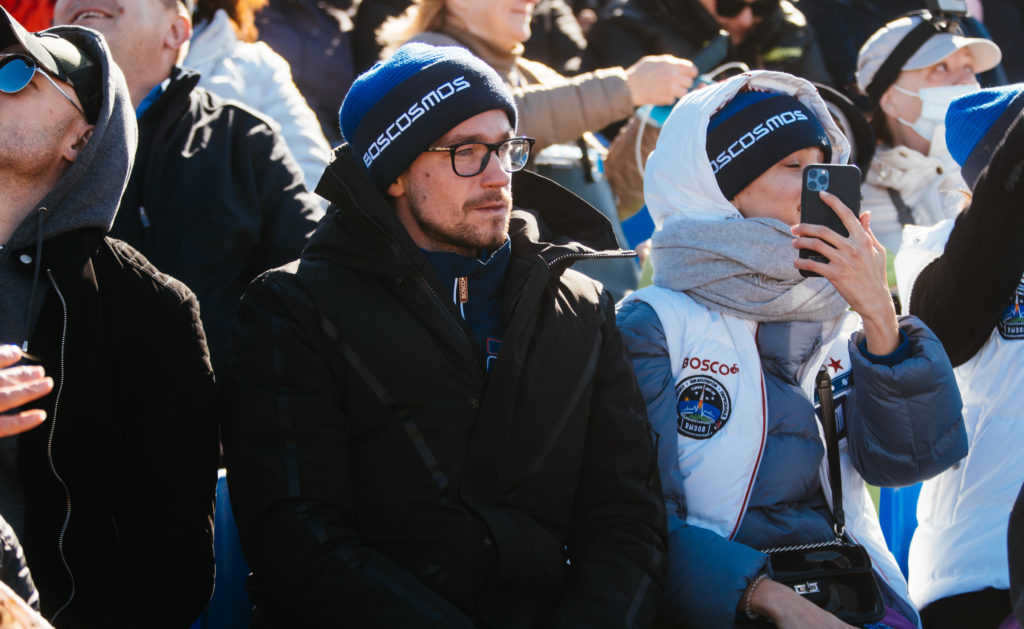
During the special edition of the show “Evening Urgant,” which was filmed at the Baikonur Cosmodrome prior to the launch, actors Alexander Petrov and Vladimir Mashkov showed their support for Peresild and Shipenko. Mashkov will have a role in “Challenge” when filming takes place on Earth, and Petrov is friends with the director, whom he previously worked with on the movie “Text.”
Host Ivan Urgant asked the Russian celebrities if they would consider going to space themselves.
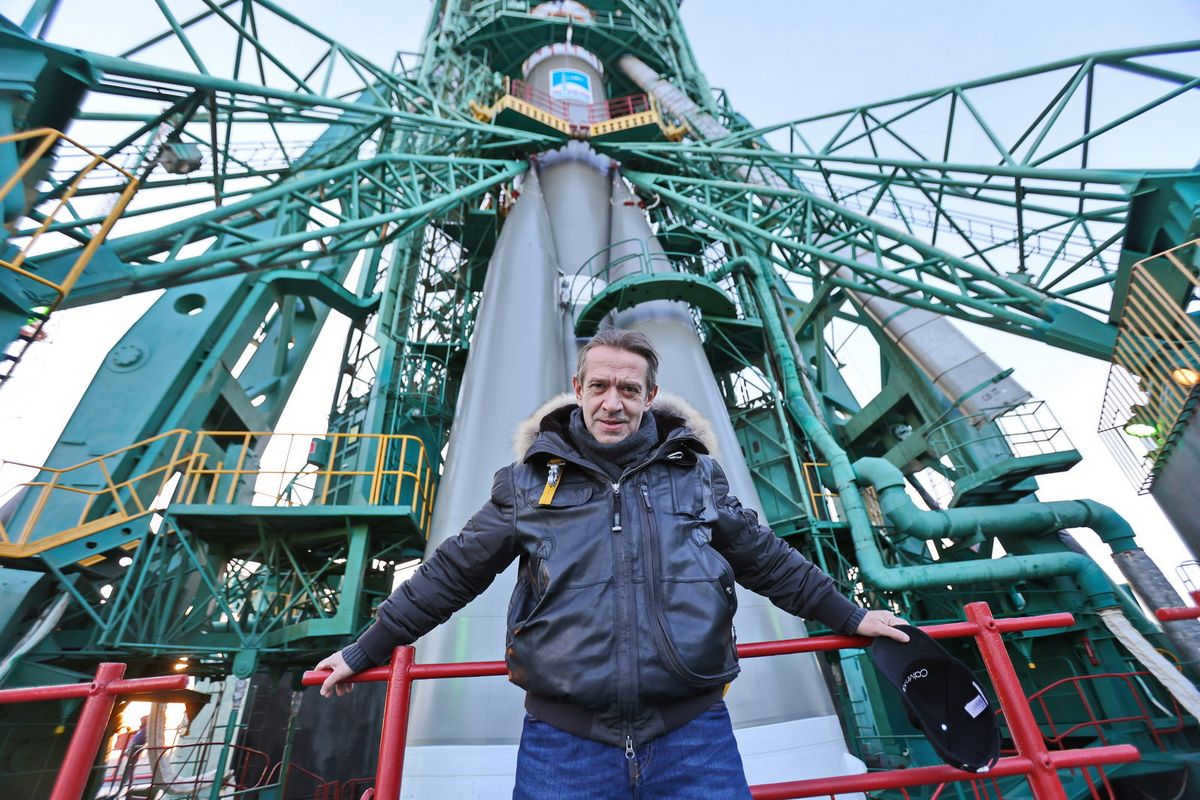
Mashkov also immediately gave his consent: “I am prepared. If anything happens, I am prepared right now. I can handle the pressure.”
“It will be an extraordinary day. It is a historically remarkable day that I am confident we will never forget, and we will take pride in this day,” Mashkov concluded.
Once more, in the lead!
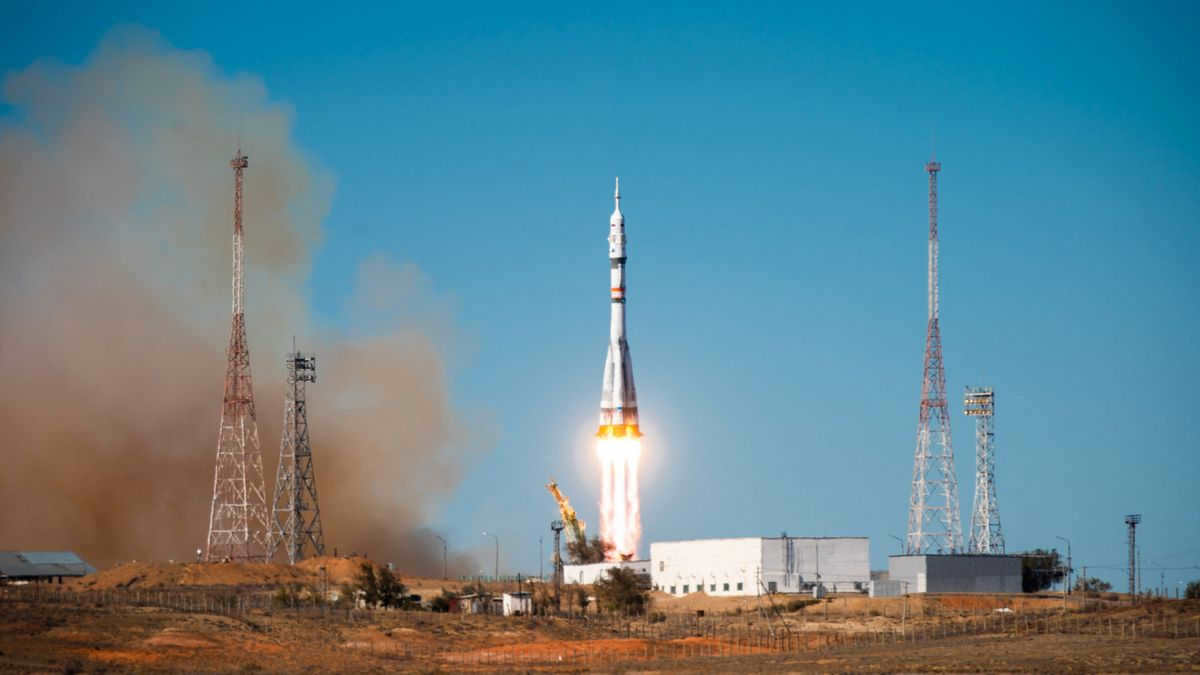
Similarly, the film “Challenge” has sparked discussion among Russian cosmonauts and artists who have not had the opportunity to go into space. Russian director Dmitry Kiselev has also expressed his thoughts on the matter.


